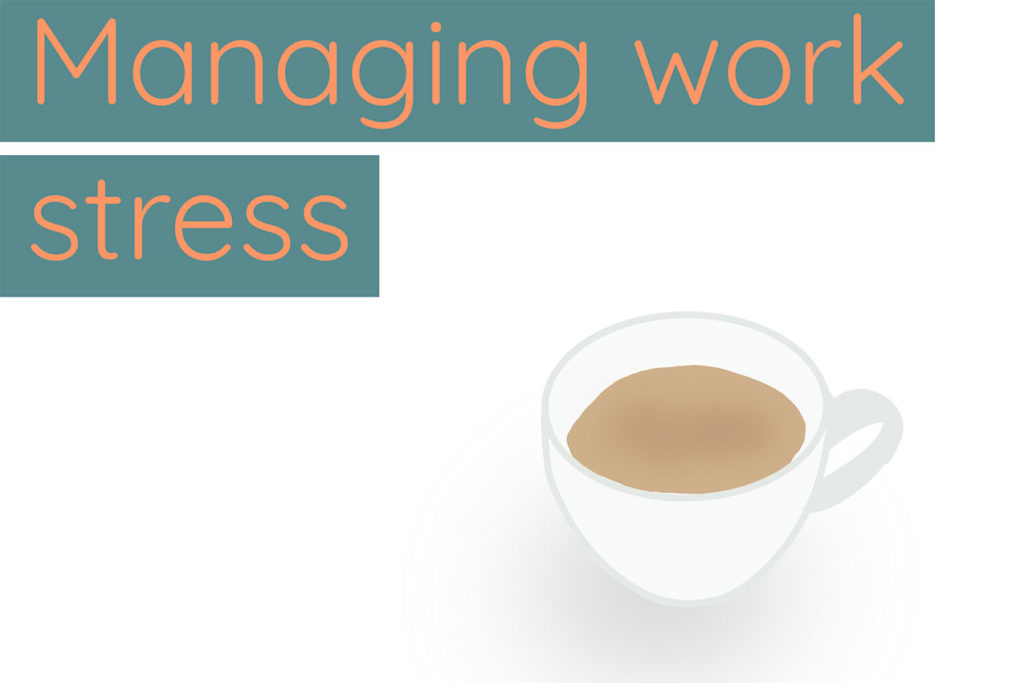Managing work stress from affecting your personal life
Roamers Therapy | August 2020

Do you struggle with separating your work from personal life? This has been a very common problem many people run into even before the global pandemic. Now, many of us are forced to work from home and it may be a little difficult to adjust to this new work environment. As counterintuitive as it sounds, it is quite difficult to work and have a personal life within the comfort of your home.
The following are some tips that should be helpful for you to be able to 1) manage your work stress, and 2) prevent work stress from entering into your personal life.
- Meditate. Pay attention to your body as you become stressed. Ask yourself: Do I feel the stress in a certain place of my body? If the answer is yes, try to relax your mind and body by practicing some meditation to disconnect yourself from work and feel grounded. If you are not familiar with meditation, apps such as Liberate or Calm may be the easiest way to get started.
- Establish healthy boundaries. Boundaries make us feel secure and supported. A boundary to prevent any work-related stress to leak into your personal life can look like setting one with yourself. For example, whether at the office or at home, stick to your regular work schedule. If you typically work from 9am to 5pm when at the office, make sure to stick to this schedule even when working from home. Doing so can help your mind start to separate the two areas of your life. Setting a boundary with your boss may look similar. For instance, if you begin to see your boss recurrently texting or emailing you at times outside of your schedule, maybe do not reply until the following morning. Note: If you would like to learn about setting boundaries with not just your co-workers but also the loved ones, you can read our previous article.
- Speak with your manager/supervisor. This will feel like a given, but making sure that you remain in close communication with your supervisor can help manage your work stress. Supervisors are there to make sure you are effective at work and if you feel unproductive, it can be beneficial to have a conversation with your supervisor about how they can support you.
- Take time to disconnect from work. People often refrain from taking breaks due to feeling like it may not be deserved until after all the work has been completed. Our brains can only handle so much until we start feeling drained or even burnt out. Taking a small break here and there between a few hours of work won’t hurt and it may even boost your productivity.
- Do something you enjoy. When your work day comes to an end, you may be drained and, hence, reluctant to do anything other than watching Netflix and going to bed. Putting in the effort to do something you enjoy can help improve your emotional stress so that you avoid burnout. Connecting with loved ones, journaling our thoughts, going for a walk, watching a movie, or treating yourself to a good meal are all good outlets to wind down from a stressful work day.
- Honor your feelings. This one may be difficult to do sometimes because the feelings we experience may not always be pleasant. However, it is important to make space to feel your feelings by first addressing that you are going through a rough time, and more specifically, that you are stressed. A good next step could be to talk with others, such as friends or family about how you are feeling for support.
I encourage you to try as many of these tips as you deem useful and implement them into your life so that you can start to find work a little more manageable given these tools.
At Roamers Therapy, our psychotherapists are here to support you through anxiety, depression, trauma and relationship issues, race-ethnicity issues, LGBTQIA+ issues, ADHD, Autism, or any challenges you encounter. Our psychotherapists are trained in Cognitive Behavioral Therapy, Dialectical Behavioral Therapy, Psychodynamic Therapy, Acceptance, and Commitment Therapy, Person-Centered Therapy, and Gottman Therapy.
Whether you’re seeking guidance on a specific issue or need help navigating difficult emotions, we’re ready to assist you every step of the way.
Contact us today to learn more about our services and schedule a session with our mental health professionals to begin your healing journey. To get started with therapy, visit our booking page.
First, decide if you’ll be paying out-of-pocket or using insurance. If you’re a self-pay client, you can book directly through the “Book Now” page or fill out the “Self-Pay/Out-of-network Inquiry Form.” If you’re using insurance, fill out the “Insurance Verification Form” to receive details about your costs and availability. Please let us know your preferred therapist. If your preferred therapist isn’t available, you can join the waitlist by emailing us. Once your appointment is confirmed, you’ll receive intake documents to complete before your first session.
This page is also part of the Roamers Therapy Glossary; a collection of mental-health related definitions that are written by our therapists.
While our offices are currently located at the South Loop neighborhood of Downtown Chicago and Lakeview on Chicago’s North Side, Illinois, we also welcome and serve clients for online therapy from anywhere in Illinois and Washington, D.C. Clients from the Chicagoland area may choose in-office or online therapy and usually commute from surrounding areas such as River North, West Loop, Gold Coast, Old Town, Lincoln Park, Rogers Park, Logan Square, Pilsen, Bridgeport, Little Village, Bronzeville, South Shore, Hyde Park, Back of the Yards, Wicker Park, Bucktown and many more. You can visit our contact page to access detailed information on our office location.
